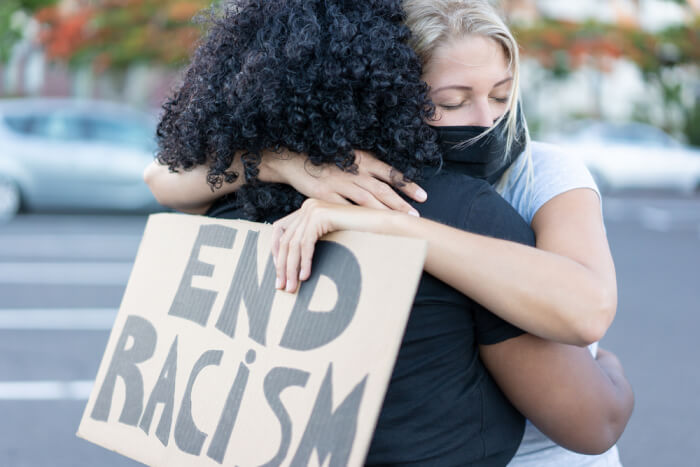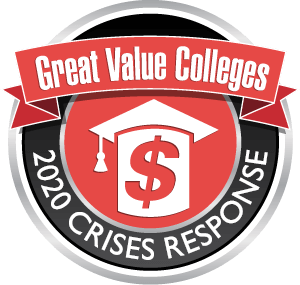2020 was the most difficult year of many people’s lives. Coronavirus and racial injustice will always be associated with 2020. And it wasn’t just difficult for individuals. Colleges across the world had to adapt their models to a new way of life and new calls for social justice. Some institutions struggled to make the necessary changes. Others put measures in place that protected students, staff, and curricula and showed that they cared about equality. The 30 colleges in this article all excelled at those goals.
Of course, 2021 will still be a challenging year. Even with the coronavirus vaccines and changes in government policy, the issues that plagued the world in 2020 will still be present for some time. Therefore, colleges have to maintain their strategies and innovations for dealing with these issues. Luckily, all of the colleges in this article can demonstrate that their plans are strong enough to endure until the crises ease.
Colleges need to recover from the long term effects of 2020. Just like the global financial crisis of 2007 to 2008, the world will take time to adjust to and overcome 2020’s aftermath. That means that every current prospective student should select a college based on how it handled 2020. Because if a college managed that year well, then it is likely to manage the following years with a similar level of expertise.
Any one of the colleges below is a solid choice for a student who wants to attend an institution that can handle a challenging year like 2020. However, it’s also possible that none of the colleges below are right for you. If that’s the case, then this article can still be a vital resource. Every entry has a summary of what the college did to navigate the difficulties of 2020 and what they’re doing to maintain their strengths in 2021. If any college you’re interested in attending is doing what the below colleges are doing, then that’s a strong sign that it’s a college worth attending.
Methodology
The sources that made up the basis of the research for this article provided two kinds of data: colleges that have successfully navigated 2020 and colleges that have been unsuccessful. Naturally, colleges with inadequate responses to the crises of 2020 have been omitted from the final ranking. Our full list of sources is as follows:
- Inside Higher Ed, Live Updates: Latest News on Coronavirus and Higher Education
- The New York Times, Some Colleges Plan to Bring Back More Students in the Spring
- The New York Times, Tracking the Coronavirus at U.S. Colleges and Universities
- U.S. News, Colleges, Universities Continue Battling Major COVID-19 Spikes
- National Geographic, The colleges with virtually no coronavirus cases
- Inside Higher Ed, Putting Action Behind Words
- The Chronicle of Higher Education, Are Colleges Really Falling Short on Racial Justice?:
After sourcing the colleges from these articles, we conducted further research into their handling of the crises of 2020. We also compared enrollment figures to positive coronavirus cases on campus. Any college with over 1,000 coronavirus infections and/or an infection rate higher than 10% of the college’s overall student population by December 11th, 2020, was excluded from the final ranking.
The final ranking is based on the following criteria: Evidence of colleges keeping coronavirus cases on-campus low, evidence of colleges making significant changes to promote racial justice, and colleges that have strong strategies at the start of 2021.
The ranking, from 30 to one, is below:
30. University of Connecticut
Storrs, Connecticut

US News notes that, in 2020, the University of Connecticut was quick to contain a coronavirus outbreak in an off-campus apartment building, which resulted in an on-campus positivity rate of 0.72% following the containment. And in August, the college was quick to evict students who had held a high-density party with no face masks or other social distancing methods, Inside Higher Ed notes. By December 11th, 2020, 832 coronavirus cases had been detected on campus, and 90 of these had occurred at the college’s medical school, The New York Times reports. And in September 2020, the University of Connecticut introduced a new course that would educate students on the foundations and systemic effects of racism.
29. University of Pittsburgh
Pittsburgh, Pennsylvania

In January 2021, the University of Pittsburgh told students not to return to campus immediately at the start of the term. The college also said that it would provide two weeks of notice before recommending students to return to campus, Inside Higher Ed notes. In 2020, the college managed to contain its campus well considering its size, with the college seeing 810 coronavirus cases by December 11th, The New York Times states. And in August 2020, the college announced that it was launching an anti-racism course, which has the goal of encouraging students to become activists through their study.
28. University of Central Oklahoma
Edmond, Oklahoma
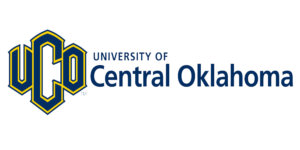
On January 14, 2021, the University of Central Oklahoma announced that it had decided to begin the spring semester online and assess a return to in-person learning from February onward, Inside Higher Ed states. This cautious approach worked in 2020 when the college saw 690 coronavirus cases on campus by December 11th, The New York Times reports. In summer 2020, the University of Central Oklahoma stated that it would focus on transformational learning to become more equal. The college committed to listening, understanding, and changing through a process of self-reflection and with guidance from others.
27. Boston University
Boston, Massachusetts

Boston University’s community is taking coronavirus so seriously that even the college’s basketball team members wear masks while competing, Inside Higher Ed notes. By December 11th, 2020, there had been 600 cases of coronavirus on the college’s campus, The New York Times states. In the summer of 2020, the president of Boston University summarized the college’s response to social justice. He said that, “This is a time when it’s vitally important to listen and learn.” He also assured the community that while change would be difficult, it would happen.
26. Indiana University of Pennsylvania
Indiana, Pennsylvania
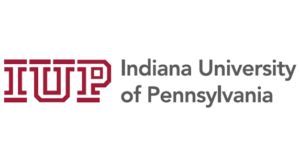
On January 5th, 2021, Indiana University of Pennsylvania decided to deliver the first three weeks of its term virtually due to concerns about increasing virus spread because of the holidays, slow vaccine roll-out, and other issues. In 2020, the college successfully kept coronavirus cases low, with the college recording 486 cases by December 11th, The New York Times notes. In the summer of 2020, Indiana University of Pennsylvania’s President’s Commission on Diversity and Inclusion announced that it would increase the quality and the quantity of its anti-racism work. However, the commission also clarified that it would not rush its new initiatives and that it wanted to hear from its community in building an anti-racism framework.
25. University of Montana
Missoula, Montana
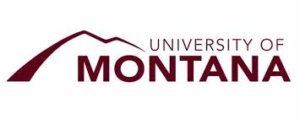
Inside Higher Ed notes that in 2020, the University of Montana launched two courses based on racial equality and criminal justice. The New York Times notes that the college had seen 480 cases of coronavirus on campus by December 11th, 2020. The University of Montana is using its Incident Command Team to manage the on-campus coronavirus response. The Incident Command Team is formed out of people from over 30 different campus units, ensuring that the college can monitor and address a wide range of coronavirus issues.
24. Harvard University
Boston, Massachusetts

In early 2021, thanks to strong coronavirus containment measures, Harvard University was able to double the number of students in on-campus housing, The New York Times states. The other New York Times source notes that by December 11th, 2020, the college had only had 318 cases of coronavirus. Additionally, National Geographic praised how the college used its public health infrastructure to combat coronavirus transmissions. In 2020, Havard University’s Dean of Students Office committed “to becoming an active anti-racist organization.”
23. Syracuse University
Syracuse, New York

While Syracuse University had reported 801 cases of coronavirus on campus by December 11th, 2020, none of those could be traced to classroom learning, The New York times reports. The source also notes that the college decided to speed up coronavirus test turnaround time by creating its own testing lab. Additionally, when coronavirus was being spread on campus, the college made strong efforts to curb its spread. On October 7th, 2020, the college limited its social gatherings to five people, Inside Higher Ed notes. Also, in 2020, Syracuse University announced significant funding for anti-racism efforts. For instance, it invested $5 million for minority scholarships and made it mandatory for students, faculty, and staff to undergo anti-racism training.
22. University of California, San Diego
San Diego, California

The New York Times notes that the University of California, San Diego planned to provide over 11,000 students with on-campus housing for the spring semester, thanks to its low case rate. The other New York Times source notes that the college was able to keep coronavirus cases in its community to a minimum in 2020, with the college only seeing 720 cases by December 11th. This figure is impressive, as the college brought back over 9,000 students in the fall of 2020. And since students started returning to campus, the coronavirus cases have remained low. The college’s current coronavirus plan is called the Return to Learn Program, which has three pillars: Risk Mitigation, Viral Detection, and Intervention. And in August 2020, the University of California, San Diego released its strategies for addressing racism. This document showed that the college took racial justice and equality seriously, with significant efforts being made all over the college, such as departments holding town halls on race and committing to hiring more diverse staff members.
21. Boston College
Boston, Massachusetts
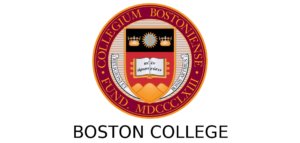
By December 11th, 2020, Boston College had seen 445 cases of coronavirus on campus. It had also decided not to participate in college football to stem virus outbreaks, The New York Times reports. In 2020, Boston College created the Forum on Racial Justice in America. This forum aims to make Boston College an academic leader in fighting racism. This forum will also help a range of anti-racism efforts taking place within different departments of the college. For example, the college’s Schiller Institute is in talks with the forum to run a program on environmental racism.
20. Prairie View A&M University
Prairie View, Texas

By December 11th, 2020, Prairie View A&M University had seen 444 cases of coronavirus on campus, according to The New York Times. The Chronicle of Higher Education also selected one of the college’s professors to discuss racial justice and academic life. In the summer of 2020, Prairie View A&M University announced that it would create the Ruth J. Simmons Center for Race and Justice. This center aims to “encourage teaching and scholarship that contributes positively to overturning systemic biases.” Once the center opens, every student who attends the college must take a course on racism and class in America. The center will also host lectures and partner with outside organizations to improve racial equality in a range of work environments.
19. Georgetown University
Washington, DC

Marcia Chatelain, a history professor at Georgetown University, spoke to The Chronicle of Higher Education in 2020 about racial injustice and academics. She highlighted the fact that colleges needed to improve the opportunities for minority employees beyond faculty members. Additionally, The New York Times notes that the college had 289 positive coronavirus cases by December 11th, 2020. And Georgetown University’s president, John J DeGioia, also announced in 2020 that the college would be accelerating its commitment to racial justice and addressing its own historical connections to slavery.
18. Cornell University
Ithaca, New York

Thanks to low in 2020 coronavirus infections and the ability to perform 40,000 tests a week, Cornell University is hosting more students in early 2021, The New York Times states. The source’s other article notes that by December 11, 2020, the college had only recorded 308 coronavirus cases. And Inside Higher Ed reports that the college improved its coronavirus testing turnaround times in January 2021. Additionally, National Geographic highlights Cornell University for creating a mathematical model for keeping coronavirus low on campus. The other Inside Higher Ed article praises Cornell University for raising funds for minority students. Additionally, the college has created a range of anti-racism initiatives on campus, such as requiring all students to undertake for-credit programming on racism.
17. Princeton University
Princeton, New Jersey

By December 11, 2020, Princeton University had only seen 161 positive coronavirus cases among its community, The New York Times reports. The other New York Times article notes that the college had done such a good job of adapting to coronavirus that it was able to offer increased in-person tuition in 2021. The Chronicle of Higher Education notes that Princeton University’s faculty members had urged the college to adopt a range of anti-racist practices. This action led the college to decide to rename its school of public and international affairs and one of its residential colleges because they were named after a racist president of the United States. The college has also created and joined a range of initiatives to expand education to underserved communities and committed to increasing its faculty diversity.
16. Brown University
Providence, Rhode Island
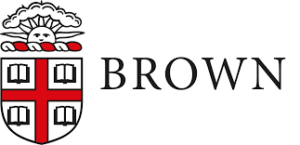
Thanks to strong coronavirus measures, by December 11th, 2020, Brown University had only seen 164 coronavirus cases, The New York Times reports. Thanks to this, the college has tripled the number of students in on-campus housing in early 2021, the other New York Times source states. Additionally, in 2020, Brown University also created a range of initiatives to increase equality. For example, it created a task force for anti-racism, established the Addressing Systemic Racism Fund, increased minority enrollment efforts, supported local public schools, and more.
15. Nazareth College
Rochester, New York

In early 2021, the president of Nazareth College assured its community that the college would use vigilance with its coronavirus safety measures. It also stated that it would be proactive in vaccination efforts and preparing for the post-pandemic, Inside Higher Ed reports. By December 11th, 2020, the college had only reported 113 cases of coronavirus on campus. And in 2020, Nazareth College’s Vice President of Community and Belonging announced that its students were successfully encouraging the college to become an anti-racist campus. This statement claimed that the college would focus on three areas of the student’s demands: increasing societal access to higher education, diversifying the college community and creating both curricula and co-curricular experiences that engage in societal issues.
14. Rice University
Houston, Texas
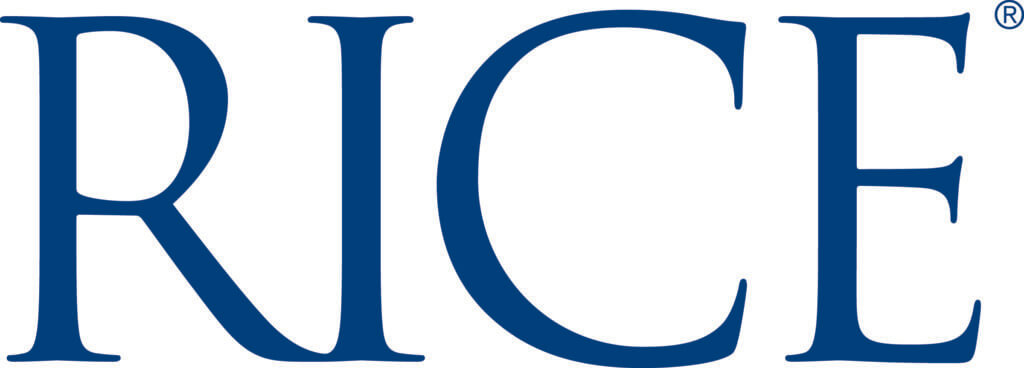
Inside Higher Ed notes that in late 2020, Rice University turned to a novel form of enforcing its coronavirus restrictions. It created a student-run coronavirus court, handing out penalties such as performing community service for violating social distancing protocols. The New York Times notes that Rice University had only seen 210 cases of coronavirus on campus by December 11th, 2020. Additionally, Inside Higher Ed’s other article notes that student leaders praised Rice University’s commitment to help students of color and search for broader solutions to inequality. These actions included creating new equality related jobs, requiring students to attend a course on diversity, and initiating a fund that allows students to engage in equality related work in the city of Houston.
13. Colgate University
Hamilton, New York
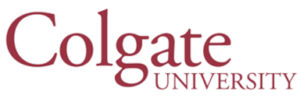
In The Chronicle of Higher Education, Colgate University’s provost and dean of Africana Studies discusses the importance of using multiple approaches when colleges hire diverse faculty. The New York Times also notes that Colgate University had only seen 54 coronavirus cases on campus by December 11th, 2020. When it came to planning for reopening the campus, Colgate University’s Task Force “reviewed dozens of other colleges and university statements and plans, attended various webinars from public health agencies and university associations, as well as consulted widely with our colleagues at peer institutions.”
12. Swarthmore College
Swarthmore, Pennsylvania
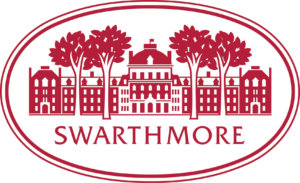
National Geographic highlights that Swarthmore College’s economics professor, Jennifer Peck, developed a mathematical model for coronavirus scenarios. Thanks to this kind of research and planning, the college had only seen 42 positive coronavirus cases by December 11th, New York Times reports. Various departments within Swarthmore College have responded to the social justice issues of 2020. For instance, the Department of Chemistry & Biochemistry stated that it would create a diversity and inclusion plan. Details of this plan will be announced in June 2021.
11. Colby College
Waterville, Maine
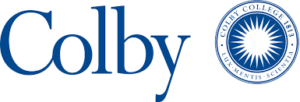
Colby College’s president informed The New York Times that his community had been able to eradicate all coronavirus transmissions on-campus in 2020. Thanks to these efforts, the college only saw 27 cases of coronavirus by December 11th, 2020, The New York Times’s other article states. Additionally, Colby College also did well financially in 2020. Despite the recession caused by the coronavirus, the college was still able to gain over $83 million in new commitments and $72 million in cash and assets. Additionally, in the summer of 2020, the college’s president stated that the college’s leaders would “work more assertively to make additional changes that not only realize our commitment to creating a more inclusive community but also affirm our desire to work actively to become an anti-racist college.”
10. Wheaton College
Norton, Massachusetts

By December 11th, 2020, Wheaton College had recorded just 23 cases of coronavirus in its community, according to The New York Times. The other New York Times article reports that by the end of 2020, the college had 1,200 students on campus and was adding approximately 100 more in the next semester. And in 2020, Wheaton College’s community became active in national anti-racism efforts. For instance, in September, the college’s faculty, students, and staff participated in #ScholarStrike, which engaged people with meaningful conversations about race.
9. Salve Regina University
Newport, Rhode Island
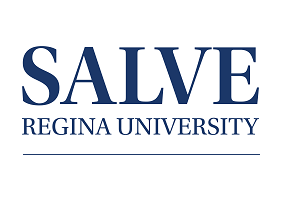
By December 11th, 2020, Salve Regina University had only recorded 47 cases of coronavirus on-campus. In early 2021, the college was just as stringent with its coronavirus safety protocols. For example, the college ordered its students to shelter in place when coronavirus cases began rising, and students started disobeying social distancing rules, Inside Higher Ed reports. And in 2020, Salve Regina University announced that it would take new steps to eradicate racism and make its campus more diverse. These steps included training its community about equality, launching an equity and inclusion summit, hiring more diverse community members, and more.
8. Union College
Schenectady, New York
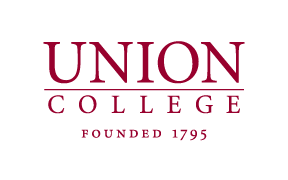
When coronavirus cases started increasing in January 2021, Union College quickly imposed a two-week campus quarantine, Inside Higher Ed notes. Measures like this were successful in 2020, with the college only recording 34 coronavirus cases by December 11th of that year, The New York Times notes. In summer 2020, Union College held a forum on racial injustice to explore how it could improve its equality measures. This resulted in the college’s president launching the Presidential Initiative on Race, aiming to unify the college in its future equality measures.
7. Linfield University
Portland, Oregon

In early 2021, Linfield University was able to stop the spread of coronavirus on campus by pausing in-person classes for four days, Inside Higher Ed reports. This success in stopping coronavirus is unsurprising, as the college had been effective in preventing transmissions in 2020. In fact, The New York Times reports that by December 11th, 2020, the college had only recorded 17 coronavirus cases. And in the summer of 2020, Linfield University’s faculty members published a letter stating that they would not be complacent in the face of racism. This letter also stated that “the expertise and engagement of students, faculty, and staff at Linfield are urgently needed.”
6. Howard University
Washington, DC
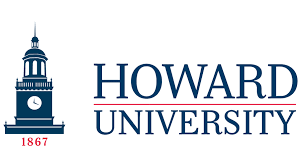
When National Geographic reported on colleges with very few coronavirus infections in November 2020, Howard University had only seen 39 positive cases. The New York Times’s report on December 11th, 2020, states that that figure had increased to 54 positive cases. Inside Higher Ed also notes that the president of the historically black Howard University has urged African Americans to get the coronavirus vaccine. Additionally, the other Inside Higher Ed article notes that Howard University professors are contacting other colleges to increase the opportunities for minority students. The college’s pandemic response follows four principles: support, advocate, facilitate and educate.
5. The New School
New York City, New York

Despite being located in the early epicenter of the US coronavirus outbreak, The New School had seen just 16 cases of coronavirus on-campus by December 11th, 2020. And in September 2020, The Chronicle of Higher Education selected the college’s economics and urban policy professor to discuss racial injustice on college campuses. Additionally, The New School has used both the coronavirus pandemic and the social justice calls of 2020 to highlight inequality. For example, the college’s Digital Equity Lab released an in-depth case study on how community internet projects can improve equality.
4. Paul Quinn College
Dallas, Texas

The Chronicle of Higher Education led a conversation on racial injustice in academic life with the president of Paul Quinn College. The college was founded on the principles of racial justice. In 1872, it opened to educate formerly enslaved people. And in 2020, Paul Quinn College partnered with Capital One and Impact Ventures on a $200 million initiative that would help underserved communities’ growth and socioeconomic advancement. Additionally, Paul Quinn College has been able to control coronavirus on campus. For instance, on December 14th, 2020, the college only had four active coronavirus cases.
3. Sarah Lawrence College
Bronxville, New York
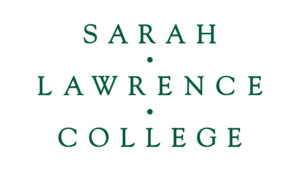
By November 23rd, 2020, Sarah Lawrence College had only recorded 11 coronavirus cases, National Geographic notes. By December 11th, that figure had increased to 12 cases, The New York Times reports. Additionally, Sarah Lawrence College has built a strong plan for the spring 2021 semester by adapting and learning from its fall 2020 plan. And the college held a range of anti-racism initiatives in 2020. For instance, it arranged several events that reflected upon and discussed racism in America.
2. St. Lawrence University
Canton, New York

In late November 2020, St. Lawrence University recorded nine active coronavirus cases on campus. The college acted swiftly, moving entirely online for the rest of its semester and conducting contact tracing, Inside Higher Ed reports. Thanks to these efforts, coronavirus cases remained low on campus. The New York Times states that by December 11th, 2020, the college had only seen 17 cases of coronavirus overall. In the summer of 2020, Bill Fox, the president of St. Lawrence University, announced some of the racial justice initiatives that the college was undertaking. These initiatives included tasking each college division to develop diversity/inclusion tactics, increasing the number of positive multicultural exhibits on campus, creating a Black Laurentian Initiative Fund, and more.
1. Williams College
Williamstown, Massachusetts

In early 2021, Williams College announced the tightening of its already strict coronavirus rules, Inside Higher Ed notes. Students would have to provide a negative coronavirus test before returning to campus, for instance. The college’s 2020 coronavirus measures ensured that the campus only saw 13 positive cases by December 11th, 2020, The New York Times notes. In the summer of 2020, the Williams College president announced that the college would “confront and fight racial and social injustice.” The announcement stated that the college would do this via creating new student engagement initiatives, investing $500,000 in racial justice organizations, forming partnerships with racial justice organizations, and more.
Related Resources:
- 30 Colleges That Are Promoting Ethnic Awareness
- Is Choosing a College That Emphasizes Diversity a Good Idea?
- 5 Advantages to Diversity on College Campuses
- 30 Organizations That Are Boosting African American Educational Achievement
- Top 30 Schools Successfully Fighting COVID
- College Students Report Financial, Mental Health Challenges: GVC Covid Study 2021
- How the COVID-19 Crisis is Affecting Students’ Mental Health
- 10 Steps Schools Can Take to Keep On-Campus Students Safe During Covid-19
- College During COVID-19: Online Classes and Risky Reopenings

